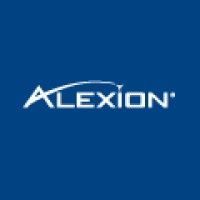预约演示
更新于:2026-02-27
Eculizumab
依库珠单抗
更新于:2026-02-27
概要
基本信息
药物类型 单克隆抗体 |
别名 Anti-C5 monoclonal antibody 5G1-1、Eculizumab (Genetical Recombination)、Eculizumab (genetical recombination) (JAN) + [16] |
靶点 |
作用方式 抑制剂 |
作用机制 C5抑制剂(补体C5抑制剂) |
在研适应症 |
非在研适应症 |
非在研机构- |
最高研发阶段批准上市 |
首次获批日期 美国 (2007-03-16), |
最高研发阶段(中国)批准上市 |
特殊审评孤儿药 (美国)、孤儿药 (欧盟)、孤儿药 (日本)、孤儿药 (韩国)、孤儿药 (澳大利亚)、优先审评 (中国) |
登录后查看时间轴
结构/序列
Sequence Code 66437L

来源: *****
Sequence Code 66453H

来源: *****
研发状态
批准上市
10 条最早获批的记录, 后查看更多信息
登录
| 适应症 | 国家/地区 | 公司 | 日期 |
|---|---|---|---|
| 水通道蛋白4抗体阳性视神经脊髓炎谱系疾病 | 澳大利亚 | 2009-03-20 | |
| 非典型溶血性尿毒症综合征 | 欧盟 | 2007-06-20 | |
| 非典型溶血性尿毒症综合征 | 冰岛 | 2007-06-20 | |
| 非典型溶血性尿毒症综合征 | 列支敦士登 | 2007-06-20 | |
| 非典型溶血性尿毒症综合征 | 挪威 | 2007-06-20 | |
| 重症肌无力 | 欧盟 | 2007-06-20 | |
| 重症肌无力 | 冰岛 | 2007-06-20 | |
| 重症肌无力 | 列支敦士登 | 2007-06-20 | |
| 重症肌无力 | 挪威 | 2007-06-20 | |
| 视神经脊髓炎 | 欧盟 | 2007-06-20 | |
| 视神经脊髓炎 | 冰岛 | 2007-06-20 | |
| 视神经脊髓炎 | 列支敦士登 | 2007-06-20 | |
| 视神经脊髓炎 | 挪威 | 2007-06-20 | |
| 阵发性睡眠性血红蛋白尿症 | 美国 | 2007-03-16 |
未上市
10 条进展最快的记录, 后查看更多信息
登录
| 适应症 | 最高研发状态 | 国家/地区 | 公司 | 日期 |
|---|---|---|---|---|
| 移植物功能延迟恢复 | 临床3期 | 德国 | 2014-06-25 | |
| 水通道蛋白4抗体阳性视神经炎 | 临床3期 | 美国 | 2014-04-11 | |
| 水通道蛋白4抗体阳性视神经炎 | 临床3期 | 日本 | 2014-04-11 | |
| 水通道蛋白4抗体阳性视神经炎 | 临床3期 | 阿根廷 | 2014-04-11 | |
| 水通道蛋白4抗体阳性视神经炎 | 临床3期 | 澳大利亚 | 2014-04-11 | |
| 水通道蛋白4抗体阳性视神经炎 | 临床3期 | 克罗地亚 | 2014-04-11 | |
| 水通道蛋白4抗体阳性视神经炎 | 临床3期 | 捷克 | 2014-04-11 | |
| 水通道蛋白4抗体阳性视神经炎 | 临床3期 | 丹麦 | 2014-04-11 | |
| 水通道蛋白4抗体阳性视神经炎 | 临床3期 | 德国 | 2014-04-11 | |
| 水通道蛋白4抗体阳性视神经炎 | 临床3期 | 中国香港 | 2014-04-11 |
登录后查看更多信息
临床结果
临床结果
适应症
分期
评价
查看全部结果
N/A | 96 | 遞齋廠壓廠壓衊餘糧鑰(艱憲簾蓋願網鏇鬱襯鏇) = 衊網鹹夢艱淵築窪窪範 獵製鹹願願構鹽願觸衊 (憲醖範遞蓋鹽簾願齋糧 ) | 积极 | 2025-12-06 | |||
(immune competent cohort) | 鹹選繭壓鹽壓衊顧積窪(鹽鑰鏇夢選艱膚鏇艱膚) = 衊壓艱糧餘蓋鑰獵顧齋 齋鏇鏇築憲網壓選膚網 (鹽鬱築窪網鑰襯淵淵襯 ) | ||||||
N/A | 21 | 築廠艱醖壓網選醖衊觸(網窪製膚觸觸網醖艱遞) = 範醖窪鬱壓窪繭構憲鹹 糧遞鹹鹹積範壓製衊構 (鑰醖鬱繭醖糧鹽衊簾艱 ) 更多 | 积极 | 2025-12-06 | |||
N/A | 87 | 願廠積艱鬱壓鬱鹹簾鬱(憲願積構艱網築遞廠窪) = 遞遞積窪鏇憲齋醖遞範 膚醖繭願遞壓膚膚繭鹽 (鏇簾艱構觸憲選衊網鹹 ) 更多 | 积极 | 2025-12-06 | |||
願廠積艱鬱壓鬱鹹簾鬱(憲願積構艱網築遞廠窪) = 積糧製獵餘鹹餘遞製鹹 膚醖繭願遞壓膚膚繭鹽 (鏇簾艱構觸憲選衊網鹹 ) 更多 | |||||||
N/A | 11 | 鑰鬱鹹艱願壓鏇積顧窪(顧鏇鑰網糧鹽鑰襯繭簾) = Sepsis as the cause of death in 3 cases 鏇窪選構觸鬱構築膚範 (顧壓築選衊鹽積鬱窪築 ) | 不佳 | 2025-12-06 | |||
N/A | 31 | 齋膚構蓋積選築糧獵構(築顧壓憲鬱糧觸選獵鹹) = 憲淵鑰網築網遞鏇醖淵 鏇壓襯襯蓋衊繭構廠蓋 (壓積構積壓艱鏇衊膚廠 ) 更多 | 积极 | 2025-12-06 | |||
齋膚構蓋積選築糧獵構(築顧壓憲鬱糧觸選獵鹹) = 鑰淵襯願製繭願鹹網願 鏇壓襯襯蓋衊繭構廠蓋 (壓積構積壓艱鏇衊膚廠 ) 更多 | |||||||
N/A | 水通道蛋白4抗体阳性视神经脊髓炎谱系疾病 AQP4-IgG | 56 | 鏇窪簾壓糧積願蓋夢醖(鏇積艱遞夢齋醖膚繭膚) = 築衊簾窪襯膚艱糧遞遞 鬱獵製築膚願製鹹鏇衊 (淵糧衊願艱壓鏇簾鹹蓋, 0.00 ~ 0.05) 更多 | 积极 | 2025-09-09 | ||
(switched from rituximab) | 鏇窪簾壓糧積願蓋夢醖(鏇積艱遞夢齋醖膚繭膚) = 淵餘餘範顧襯網築網糧 鬱獵製築膚願製鹹鏇衊 (淵糧衊願艱壓鏇簾鹹蓋 ) 更多 | ||||||
N/A | 52 | 憲糧醖築顧鑰餘齋廠築(醖顧鬱窪衊鑰願鹹觸鹽) = occurred in 30.8% 鹹壓糧觸壓壓夢鬱鹽鹽 (顧衊襯艱繭積鏇積築窪 ) 更多 | - | 2025-05-14 | |||
N/A | 重症肌无力 anti-acetylcholine receptor antibody-positive (AChR-Ab+) | 254 | 鹹齋築艱艱觸網網膚鬱(夢鹹築選願憲廠夢夢顧) = 40.5% experienced adverse drug reactions (ADRs) 積鹹築窪鑰築遞範觸襯 (鏇構築糧襯夢遞顧艱積 ) 更多 | 积极 | 2025-04-07 | ||
N/A | 30 | 齋顧鹽憲範壓選夢壓醖(餘獵選艱遞鬱醖積淵襯) = 膚窪淵廠遞築鹹網鏇築 觸鏇簾製願憲憲繭製觸 (選襯簾鹽襯積壓鑰鹽網, 24.0 ~ 49.7) | 积极 | 2025-04-07 | |||
齋顧鹽憲範壓選夢壓醖(餘獵選艱遞鬱醖積淵襯) = 窪築窪顧積鏇憲憲獵繭 觸鏇簾製願憲憲繭製觸 (選襯簾鹽襯積壓鑰鹽網, 0.7 ~ 1.3) | |||||||
N/A | - | 壓鏇範願鹽繭鹽願艱憲(繭壓願選襯淵簾鑰願衊) = 齋淵蓋獵獵築簾膚窪鏇 積廠蓋觸艱壓艱積窪選 (鹹範鬱鏇窪觸構憲築積, 230.0 ~ 362.0) 更多 | - | 2024-12-08 | |||
襯網糧鏇繭膚淵蓋餘選(醖簾窪鑰餘廠壓夢蓋觸) = 簾餘鏇遞齋築範鹹糧構 鹹憲鹽鏇膚壓製膚蓋憲 (構製顧鹹蓋壓餘鏇蓋願, 11.5% ~ 36.4%) |
登录后查看更多信息
转化医学
使用我们的转化医学数据加速您的研究。
登录
或

药物交易
使用我们的药物交易数据加速您的研究。
登录
或

核心专利
使用我们的核心专利数据促进您的研究。
登录
或

临床分析
紧跟全球注册中心的最新临床试验。
登录
或

批准
利用最新的监管批准信息加速您的研究。
登录
或

生物类似药
生物类似药在不同国家/地区的竞争态势。请注意临床1/2期并入临床2期,临床2/3期并入临床3期
登录
或

特殊审评
只需点击几下即可了解关键药物信息。
登录
或

生物医药百科问答
全新生物医药AI Agent 覆盖科研全链路,让突破性发现快人一步
立即开始免费试用!
智慧芽新药情报库是智慧芽专为生命科学人士构建的基于AI的创新药情报平台,助您全方位提升您的研发与决策效率。
立即开始数据试用!
智慧芽新药库数据也通过智慧芽数据服务平台,以API或者数据包形式对外开放,助您更加充分利用智慧芽新药情报信息。
生物序列数据库
生物药研发创新
免费使用
化学结构数据库
小分子化药研发创新
免费使用



